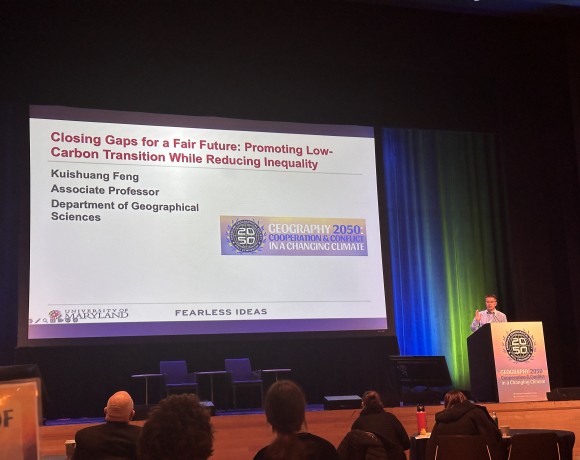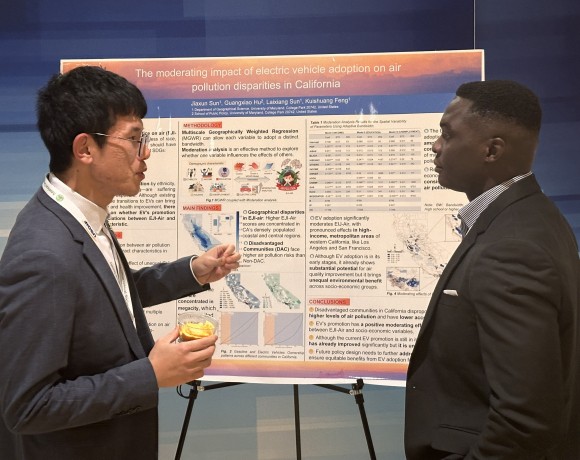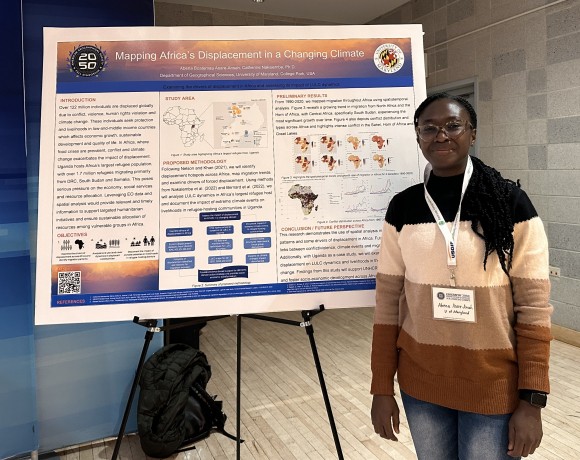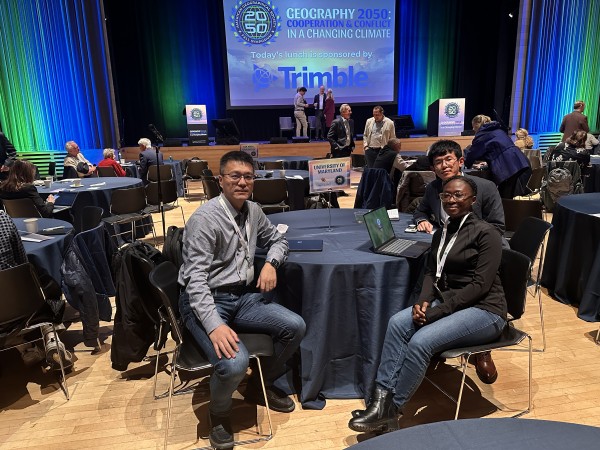UMD Scholars Address Climate Inequality at Geography 2050
Research Explores Climate-Driven Displacement, EV Disparities and Carbon Equity
Associate Professor Kuishuang Feng and doctoral students Jiaxun Sun and Abena Boatemaa Asare-Ansah from the Department of Geographical Sciences brought their research to the forefront at the Geography 2050: Cooperation & Conflict in a Changing Climate conference held Nov. 21 and 22 at Columbia University. The event, organized by the American Geographical Society in partnership with the Columbia Climate School, explored how cooperation and conflict will impact a changing climate.
Feng delivered a lightning talk titled “Closing Gaps for a Fair Future: Promoting Low-Carbon Transition While Reducing Inequality.” His presentation examined the global imbalance in carbon emissions and income distribution, focusing on how climate policies, such as carbon pricing, can impact households differently.

“A key takeaway is the importance of tailoring fiscal policies to support vulnerable communities,” Feng said. “The transition to low-carbon power must be equitable, addressing inequality while protecting those most affected by climate change.”
Doctoral student Sun presented a poster titled “The Moderating Impact of Electric Vehicle Adoption on Air Pollution Disparities in California.” His research revealed stark disparities in air pollution exposure and access to electric vehicles (EVs) among socio-economic groups.
“Disadvantaged communities are experiencing higher levels of air pollution and facing barriers to EV adoption,” Sun explained. “While EVs can reduce pollution, we need to address regional disparities to ensure the benefits are widely felt.” Sun’s presentation sparked discussions about the potential and benefit of EV in the future.

Doctoral student Asare-Ansah highlighted Africa’s climate-driven displacement crisis in her poster presentation, “Mapping Africa's Displacement in a Changing Climate.” Focusing on Uganda, she examined the country’s role as a refuge for over 1.7 million displaced people, mostly from South Sudan, the Democratic Republic of Congo and Somalia.
“While Uganda's open-door policy reflects a strong commitment to supporting displaced populations, the influx poses significant pressure on the economy, social services and resource allocation,” Abena noted. “Geospatial technologies offer a way to target humanitarian aid and foster sustainable development.”

GEOG also hosted an information table at the symposium, providing attendees with insights into its geographical sciences programs and ongoing research initiatives.
The conference highlighted technological advancements driving climate solutions. “It was inspiring to see how GeoAI is making a significant impact in human geography to address climate challenges,” Feng said, emphasizing the importance of interdisciplinary approaches.
All photos courtesy of Kuishuang Feng
Published on Wed, 12/04/2024 - 15:05


